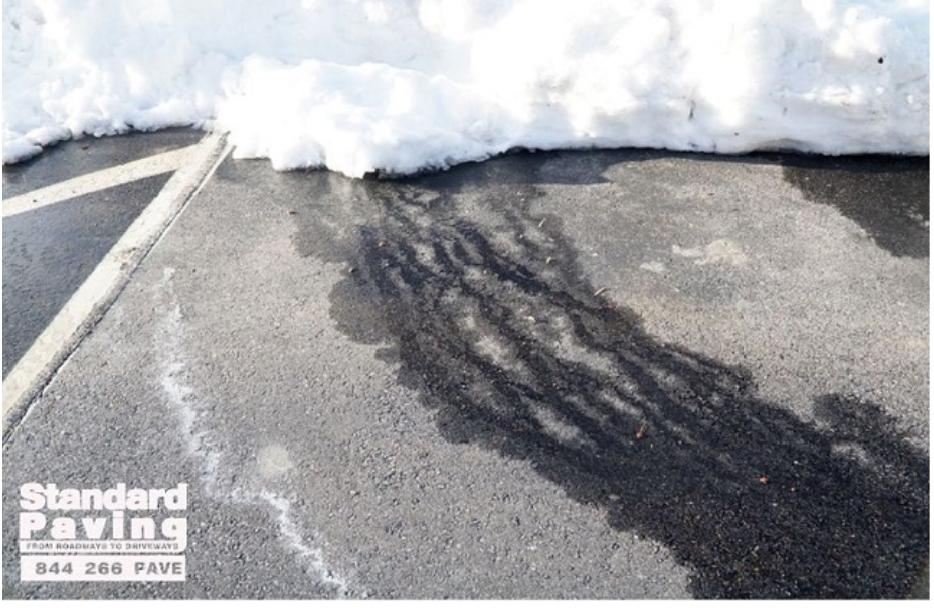Asphalt pavements are some of the most popular ones across the world. Also, custom hot-mix solutions can be modified to withstand all types of weather conditions. High-quality paving installations are designed to last more than two decades. However, proper, timely maintenance and repair will be required to guarantee the longevity of these durable surfaces.
Moreover, asphalt pavements designed with weather conditions in mind tend to last the longest. Also, different elements will have different effects on an asphalt pavement. Contractors must evaluate the climate conditions and prepare the hot mix and other materials accordingly. Here’s what you need to know about asphalt in different climates:
Asphalt in Different Weather Conditions
Asphalt Pavements in Cold Weather
Asphalt pavement surfaces can be affected differently in different weather conditions. In colder parts of the world, very low temperatures can cause asphalt to contract and crack. This will weaken the surface and reduce its lifespan when left unattended. Extreme cold weather can cause the adhesive layers to lose their grip and cause chunks to come off the surface. Also, this can cause unwanted cracks and potholes. So, to combat this, hot-mix asphalt pavement is often used in colder climates designed to last through the freeze-thaw cycles. Also, it is not affected by salt or other deicing agents.
Asphalt Pavements in Wet Weather
Most asphalt surfaces are designed so water gets swept away from high-traffic areas in wet weather. Rainwater and melting snow water can get into the under-layers, where the adhesives are used to hold the surface together. Porous asphalt is a newer paving option that allows water to run through. So, this reduces surface water build-up and makes water run back into the local collections. This type of asphalt is particularly beneficial for the environment. This is achieved by letting much of the rainwater run into the ground keeping it fertile without blocking local waterways.
Asphalt in Dry Weather
Asphalt is typically not affected by dry weather, which can be attributed to the material’s nature. However, driving hazards can occur with light rainfall on the dry asphalt surface. Asphalt surfaces that are not properly maintained can build up oil and dust over time. So, when you get a drizzle on these surfaces can make the road slippery. This is why keeping asphalt surfaces clean and free from oil stains is necessary in dry weather conditions. However, this is not much of a problem for residential asphalt driveways. Regular asphalt maintenance and seal coating applications can help prevent the build-up of surface debris and help your asphalt surface withstand even the driest days.
Asphalt Pavements and Hot Weather
In hot weather, the sun and penetrating UV rays can fade the surface altogether while causing extreme deterioration. Very hot temperatures can cause small waves in the asphalt surface and create soft spots. This is usually the case in hotter climates when summer seasons get scorchingly hot. Also, this is why the need to select an experienced asphalt pavement contractor is great. A properly laid asphalt surface will be prepared for the weather conditions. Regular inspections, maintenance, repair, and seal coating are important to prolong the life of your asphalt in even the harshest weather conditions. These efforts will prolong the life of your asphalt surface when done at the right time.
Should You Use Salt on Your Asphalt Pavement in Winter?
Salting the Asphalt Doesn’t Deteriorate the Surface
If a professional has properly installed asphalt for your driveway or parking lot, salt application will not affect it. Stones, sand, and petroleum in proportions constiture the hot-mix that is used to lay the surface. Also, the hot mix is prepared to match the needs of the paved area. It is designed to gracefully last through the freeze-thaw cycle and is not affected by salt or other deicing agents. This makes asphalt the ideal choice for driveways and parking lots.
Salting the Asphalt Can Deteriorate the Concrete
However, salt can cause the concrete to deteriorate and lose its strength. Firstly, salt is mildly acidic and breaks down the bonds that hold concrete together. Also, concrete freezes more quickly than other surfaces. So, this is why it requires more salting. Additionally, concrete overpasses and bridges are reinforced with steel which is subject to corrosion from salt. However, in a residential setting, this may not be such a big problem.
Salting the Asphalt Doesn’t Create Potholes or Cracks
Salt doesn’t actually cause potholes. Potholes are caused by water entering the ground under the pavement, slowly beginning to undermine the gravel base. Salt can potentially exaggerate the freeze-thaw cycle but is not the root cause of potholes. So, if you salt the surface of your driveway or parking lot in the snow season, know that it will not cause surface cracks or potholes. However, removing the snow is a different story.
Salting the Asphalt Can be Harmful to the environment
The biggest problem with salt is that it can be harmful to the environment. Salt in water runoff affects plants and animals. Also, it will get into the local waterways and thus affecting organic life. So, it is important to shovel and plough snow away more often than using salt. Using a mix of sand and salt in different ratios is more suitable. Also, it is the best option for melting snow faster, improving traction, and having as little impact on the environment as possible.
Bottom Line
Asphalt pavements behave differently in different weather conditions. So, the hot mix and other materials used in the pavements must be prepared keeping in mind local weather conditions. Also, salt on asphalt during the snow season will not affect the asphalt. However, it can impact concrete and the environment. So, make the right choice by manually clearing up the snow and relying on salt as little as possible. Also, maintenance will make your asphalt pavements to last longer.
read morehttps://cavegreen.us





